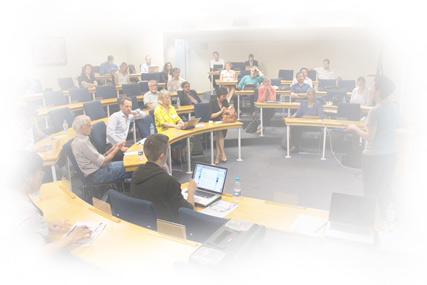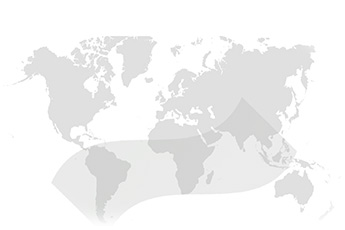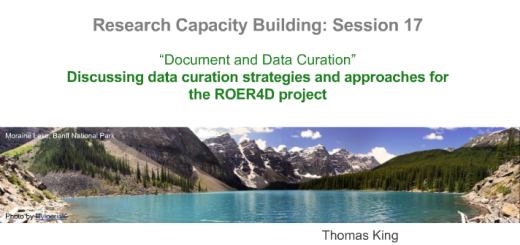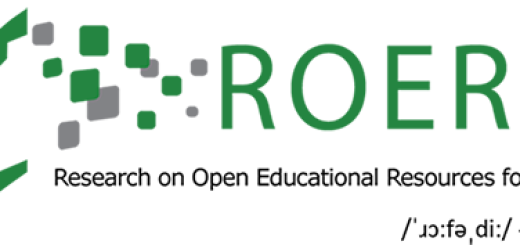Photo by Henry Trotter, reproduced with permission.
Members of ROER4D recently had the pleasure of attending and contributing to the ICDE World Conference on Online Learning in Toronto, Canada (16–19 October 2017). Titled Teaching in a Digital Age – Re-Thinking Teaching & Learning, the sold-out conference had more than 1 400 delegates from 95 countries, with over 500 presenters in 150 sessions.
The four-day event allowed for discussion around numerous issues relevant to the education community with OER and Open Education featuring prominently on the agenda. The three University of Cape Town (UCT) ROER4D Network members did their best to contribute the project’s voice to proceedings.
Laura Czerniewicz (ROER4D Lead Researcher and Director of the Centre for Innovation in Learning and Teaching at UCT) was one of the opening plenary speakers and introduced one of the five session tracks, “Emerging pedagogies and designs for online learning”.
Laura started by discussing major developments in the South African higher education scene, including the student-led #FeesMustFall movement and the growing call to decolonise the curriculum. She highlighted the fact that students are raising pedagogical issues in their activism, referencing the example of UCT’s health sciences faculty where, as a result of protest shutdown, students insisted that all lectures be recorded and that tutoring be available for all years of study. They view lecture recordings as a practical, mental health issue (in that it reduces student anxieties and stress surrounding the protests), enhancing access.
Laura then shared a story about a UCT engineering course in which the teaching style had changed from traditional to collaborative, with students being physically taken to the actual locations where the issues under discussion were most relevant (such as a township). Within this context, the educator is not alone, as community members are brought into the process, sharing their ideas with educators and students. Laura referred to this as “socially engaged pedagogy”, suggesting that it plays a role in shifting roles and power dynamics.
Laura argued that designing learning for online leads to cultural changes in learning environments, and in the universities themselves. It reduces distance, encourages diversity and brings in new participants. Decolonisation of the curriculum is not just about content, but about delivery, in that collaboration and co-creation between educators and students becomes more important.
She went on to say that emerging pedagogies are experienced as highly emotional and political. Change is about “unlearning” and “relearning”; it’s about new discourses and practices. For instance, these pedagogies beg new questions: What is it like to learn online? Is it enabling or alienating? Does it create new divides? Ultimately, we want learning designers and academics to create pedagogies of care, connection and inclusion.
In addition, talking about emerging pedagogies means talking about power. It means tussling with different discourses and understandings of what education entails, such as the neoliberal approach which sees students as customers versus that which sees them as citizens who are entitled to such provision.
Laura posed two questions: Given that pedagogy is about power, how do the power dynamics manifest as the teaching and learning experience goes online? In an age of experimentation with online and blended learning and new forms of pedagogy, what is the student experience and what are the implications of the inevitable changes?
Sukaina Walji (ROER4D Communications Advisor and Researcher) gave a presentation on “Factors enabling and constraining OER adoption and OEP”, sharing lessons learned in the ROER4D project. She discussed the various elements of the Open Education cycle (an Open Educational Practices [OEP] model currently in development), showing how different OEP – such as OER adaptation, curation and certification – are often under-utilised in the Global South, where most OER engagement tends to focus on OER use “as is”. She suggested that, in many contexts, educators were not enjoying the full value proposition of OEP because they were only engaging in certain types of activities, such as OER use rather than OER adaptation or creation. In the discussion, audience members were keen to discuss incentives for OER adoption; whether there were disciplinary differences regarding OEP; and whether the lack of OER assessment mechanisms made non-OER materials more desirable.
Henry Trotter (ROER4D Associate Editor and Researcher) gave a presentation on “National, provincial and institutional policy influence on the adoption of OER in the Global South”. It highlighted the challenges faced by many educators in the region who do not possess copyright of their educational materials due to the fact that national legislation grants employers copyright over employees’ work. This makes it a challenge for educators to share their teaching materials as OER because they do not have the legal right to attach an open licence to them. In the discussion, audience members indicated that this is also a common situation in the Global North, but that “no one is talking about it”, as one university administrator stated.
The ICDE conference in Toronto was highly successful for ROER4D getting the message out about its research to a broad audience. The Cape Town members connected with other ROER4D researchers and network members including Shironica Karunanayaka, Som Naidoo, David Porter and Stavros Xanthopoylos. The ROER4D participants emerged from the conference with new knowledge, contacts and friendships.






